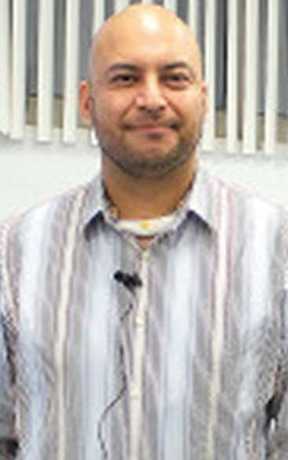
Nabire, Jubi – Gubernur Guam dalam pidato resmi tahunannya Senin (6/3) lalu menyatakan disamping dukungannya untuk memercepat proyek-proyek pembangunan, namun mengaku masih berhutang atas pelaksanaan pemungutan suara dekolonisasi Guam yang tertunda hingga 2018 mendatang.
Eddie Calvo, Gubernur Guam dua periode memaparkan rencana akhir tahunnya di dalam pernyataan tersebut. Proyek modernisasi rumah sakit wilayah itu senilai US$100 juta dan rencana membangun kembali Hagåtña, distrik ibukota pulau itu.
Calvo juga menyatakan kembali komitmennya terhadap satu janji utama di masa kekuasaannya, yaitu menyelenggarakan plebisit atas masa depan politik teritori itu.
Namun, Calvo mengakui penundaan pemungutan suara terjadi karena beberapa hal menyangkut ketidakpastian hukum, seperti persyaratan pendaftaran dan pemungutan suara, dan tantangan dihadapan pengadilan federal.
Meskipun pelebisit (referendum) tahun lalu gagal, Calvo berusaha menyakinkan keinginannya untuk menyelenggarakan pemungutan suara di akhir masa jabatan gubernurnya.
Guam, sebuah pulau berbentuk pisang sepanjang 50km, adalah wilayah koloni Amerika Serikat sebagai rampasan perang setelah Perang Spanyol-Amerika 1898 dan, terlepas dari pendudukan brutal Jepang selama Perang Dunia II, Guam masih menjadi bagian Washington sejak saat itu.
Status resmi Guam adalah ‘wilayah tak-berbadan (hukum)’ bersama dengan wilayah-wilayah seperti Northern Marianas, American Samoa, Puerto Rico dan US Virgin Islands. Walaupun menjadi warga negara Amerika Serikat, rakyatnya tidak boleh memilih Presiden, hal-hak dalam Konstitusi AS tidak berlaku, dan satu-satunya delegasi mereka di Kongres AS tidak punya hak suara.
Secara teknis Guam dimiliki AS, yang oleh Calvo dalam pidato tahunannya awal 2016 lalu menyebutnya sebagai “sebuah bentuk kolonialisme yang tidak dapat dibiarkan.”
“Inilah saatnya kita mengonfrontasi fakta bahwa hampir 400 tahun kita berada di bawah kolonial,” tegas Calvo. “Sekarang kepercayaan diri mungkin dapat menjadi pemicu yang mengubah negara kolonial sekali dan selamanya.”

Pendidikan politik atas tiga skenario masa depan Guam
Plebisit dekolonisasi Guam yang tertunda kemungkinan akan dilakukan pada 2018 mendatang.
Kontroversi terkait siapa yang berhak memberikan suara dan kekhawatiran bahwa para pemilih tidak memahami opsi-opsi di hadapan mereka dituding sebagai penyebab penundaan.
Guam telah disiapkan untuk menyelenggarakan plebisit tidak-mengikat sejak tahun 1980, yang akan mengajukan tiga opsi kepada pemilih atas masa depan pulau Mikronesia mereka itu.
Opsi-opsi tersebut adalah menjadi negara bagian AS, merdeka, atau menjadi asosiasi bebas bersama AS.
Guna memberi pendidikan politik pada pemilih terkait masing-masing opsi itu, tiga satuan tugas telah dibentuk sejak tahun 1997.
Satuan tugas Merdeka dituduh menunda-nunda plebisit tahun ini, namun ketuaa satgas Victoria-Lola Leon Guerrero membantah bahwa hukum Guam lah yang mensyaratkan agar plebisit diselenggarakan bersamaan dengan pemilu gubernur.
“Jadi apa yang ditawarkan gubernur itu ilegal karena melanggar hukum plebisit Guam sendiri,” ujar Leon Guerrero.
Menurut dia atas alasan itulah mereka menolaknya, dan mereka juga tidak setuju masyarakat didorong-dorong dengan terburu-buru untuk memilih sesuatu.
Masyarakat asli Chamorro, Guamanians dan para turunannya yang ‘dinaturalisasi’ oleh UU Organik 1950 mendapatkan hak memilih, namun, saat ini sedang dijegal di pengadilan AS oleh penduduk lama Amerika di Guam yang menganggap Guam tidak dapat masuk dalam daftar dekolonisasi.
Sebanyak 13,192 rakyat mendaftar hingga pertengahan Desember tahun lalu, sementara 52 ribu orang sudah lebih dulu teregistrasi pada pemilihan umum November.
Ketua Satgas Asosiasi Bebas Adrian Cruz mengatakan ketiga kelompok satgas sedang bekerja bersama untuk mengedukasi masyarakat akan pentingnya plebisit.
“Jadi itulah tugas pertama. Hingga sekitar enam atau tujuh bulan sebelum pemilu sebenarnya berlangsung saat itulah kami menyatakan opsi kami masing-masing dengan lebih jelas (termasuk perbedaan-perbedaannya),” ujarnya sambil menambahkan bahwa yang terpenting saat ini adalah masyarakat mengerti alasan kenapa mereka mesti memilih.
Ketua Satgas Negara Bagian Eloy P. Hara mengatakan menjadi negara (bagian) AS akan memberikan kemungkinan bagi militer AS melindungi perikanan Guam dari pengaruh Cina yang makin besar di kawasan itu.
“Cina sudah menyatakan akan bergerak untuk ‘ambil alih’ Federated States of Micronesia (FSM). Mereka sudah menggelontorkan uang ke pemerintah FSM,” ujar Hara.
“Sebagai negara bagian kita bisa meminta militer untuk menjaga zona ekonomi. Sekarang Cina, Korea sedang masuk dan kita tidak bisa melindungi diri.”
Dengan jumlah personil militer AS di Guam dari 6000 menjadi 11 ribu yang direlokasi dari Jepang, Cruz mengatakan Asosiasi Bebas akan menjadikan Guam bangsa berdaulat dengan hak suara untuk meminta kehadiran militer Amerika.
Namun ancaman sepihak militer AS saat ini yang merencanakan wilayah Guam jadi tempat pelatihan militer membuat Cruz meragukan pernyataannya sendiri. “Itu menunjukkan lagi bagaimana militer bisa lakukan apapun semau mereka,” katra Cruz.
Sementara Guam yang merdeka, kata Leon Guerrero, akan memiliki kekuatan lebih besar untuk bernegosiasi dengan posisi-posisi yang lebih setara dengan militer AS, termasuk pengembalian tanah pertanian mereka yang paling subur (yang diduduki militer AS).
Untuk diketahui Federated States of Micronesia bergabung sebagai Asosiasi Bebas dengan AS, demikian pula Kepulauan Marshall di tahun 1986 dan Palau di tahun 1994.(*)



